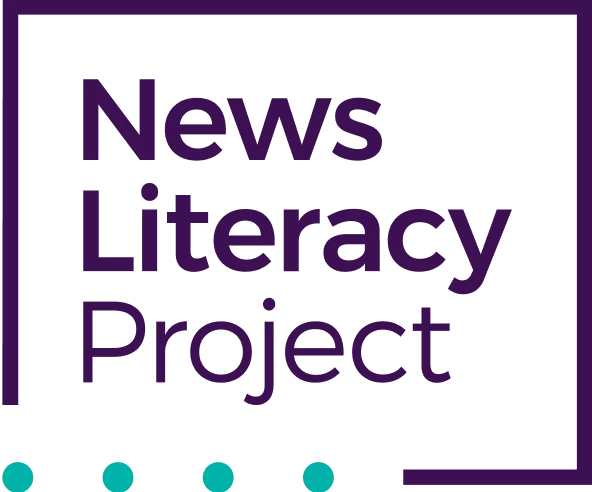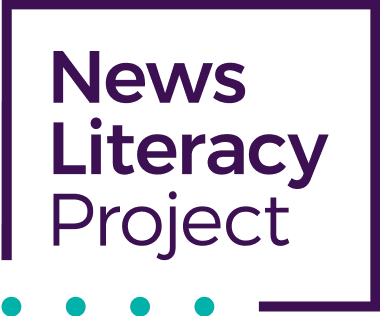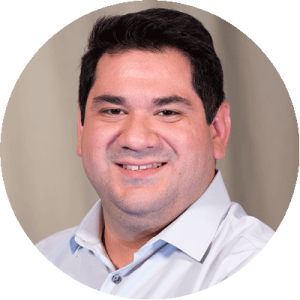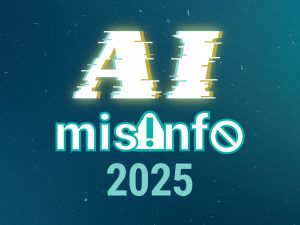NLP working to counter the impacts of ‘Truth Decay’
A new report from the RAND Corporation, a nonpartisan nonprofit research organization, confirms what we at the News Literacy Project have long known: There’s an urgent need for media literacy education that is scalable, culturally relevant and readily available.
Released earlier this month, Exploring Media Literacy Education as a Tool for Mitigating Truth Decay was produced as part of a RAND initiative exploring “Truth Decay,” which it defines as “the diminishing role that facts, data and analysis play in political and civil discourse” — in part, because of an increasingly complex information ecosystem. This report aims “to describe the field of media literacy (ML) education and the ways in which ML education can counter Truth Decay by changing how participants consume, create, and share information.”
NLP’s expertise as a leader and pioneer in news literacy education is noted throughout the report, which weighs the input and suggestions of many experts in the field and lays out the challenges to developing meaningful education programs that can be scaled for significant impact.
Challenges and solutions
The RAND researchers describe the obstacles to buildi ng a news-literate population, such as the many skills needed to evaluate sources, to understand context, and to create and share information responsibly. They identify the alarming gap between proficiency in these skills and the abilities of average individuals: a gap that results in harmful consequences — vulnerability to disinformation, misinformation, viral hoaxes and bias.
ng a news-literate population, such as the many skills needed to evaluate sources, to understand context, and to create and share information responsibly. They identify the alarming gap between proficiency in these skills and the abilities of average individuals: a gap that results in harmful consequences — vulnerability to disinformation, misinformation, viral hoaxes and bias.
Our programs provide educators with the tools and resources that enable their students to close that gap and become civically engaged, news-literate adults. While the challenges detailed are real, I can say with confidence that NLP is successfully meeting many of them:
- The report describes the importance of scaling programs for significant impact. At NLP we have laid out a framework for scaling our e-learning platform, the Checkology® virtual classroom, with the goal of creating a community of 22,000 educators teaching 3 million students annually by 2022. Since its launch in 2016, more than 129,000 students have created individual accounts on our browser-based platform (this does not include the many students who have been taught in a one-to-many format), and more than 19,000 educators in all 50 states, four U.S. territories and 108 other countries have registered to use it.
- The report rightly states that for media literacy education to succeed, it must be rigorously nonideological. All of NLP’s programs, including Checkology, are scrupulously nonpartisan and represent a variety of perspectives.
- The report explores whether media literacy education should be a stand-alone offering or integrated across disciplines. Because media literacy is an essential life skill, we have designed our programs for cross-discipline learning and lasting impact. Our curriculum conforms to state standards across disciplines (such as English language arts and social studies) and is used by media, technology and science educators. The critical-thinking and analytical skills that students gain from news literacy education serve them well long after they leave the classroom.
- The report notes the need for more developed assessment and evaluation of media literacy programs. For years, we have used formal assessments of students’ competencies before and after they are exposed to our platform, along with self-reported student feedback, to evaluate and enhance our curriculum. The impact is evident in what we heard from students who completed Checkology lessons in the 2017-18 school year (the most recent data available): 93% are more confident in their ability to detect misinformation, 81% are more likely to become more civically engaged, and 80% are more likely to correct misinformation they see online.
- The report cites experts who emphasize that the most effective media literacy education strategies “are those that reach participants in a format and context with which they are familiar and comfortable.” We reach students where they live — on their devices. And the report indicates the need for context and flexibility. Checkology lessons can be taught in a sequential order, or educators can customize them to serve their students at different grade or skill levels and in a wide range of subject areas.
Working with diverse partners
The authors also stress partnering with media organizations to achieve scale. Right from the start, NLP has partnered with outlets such as The Wall Street Journal, NPR, The Washington Post, The Houston Chronicle and Univision.
We did this for years through our initial classroom program and have continued to do so through our NewsLitCamps®, which bring scores of educators into newsrooms for a day of engaging teacher-driven professional development. This fall, we will fully launch our Newsroom to Classroom program, which will bring journalist volunteers into schools around the country, either in person or remotely. Diverse and dynamic journalists and experts on the First Amendment and digital media guide students through our Checkology lessons as well.
I welcome the conversations, collaboration and increased awareness that RAND’s timely work will prompt and look forward to expanding NLP’s contribution to the growing field of news literacy education.
